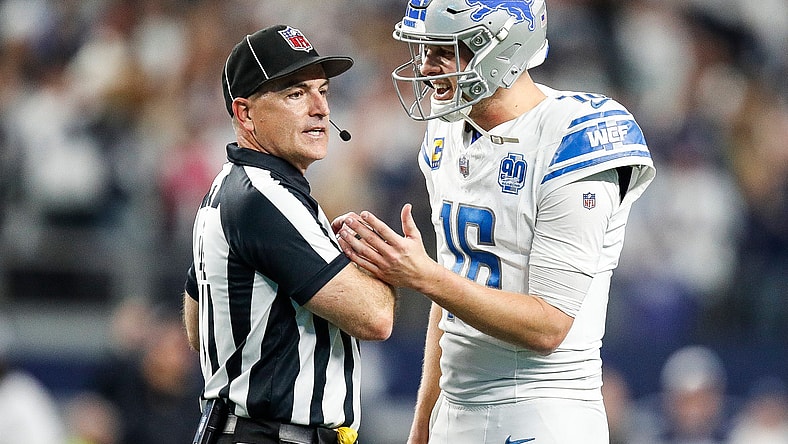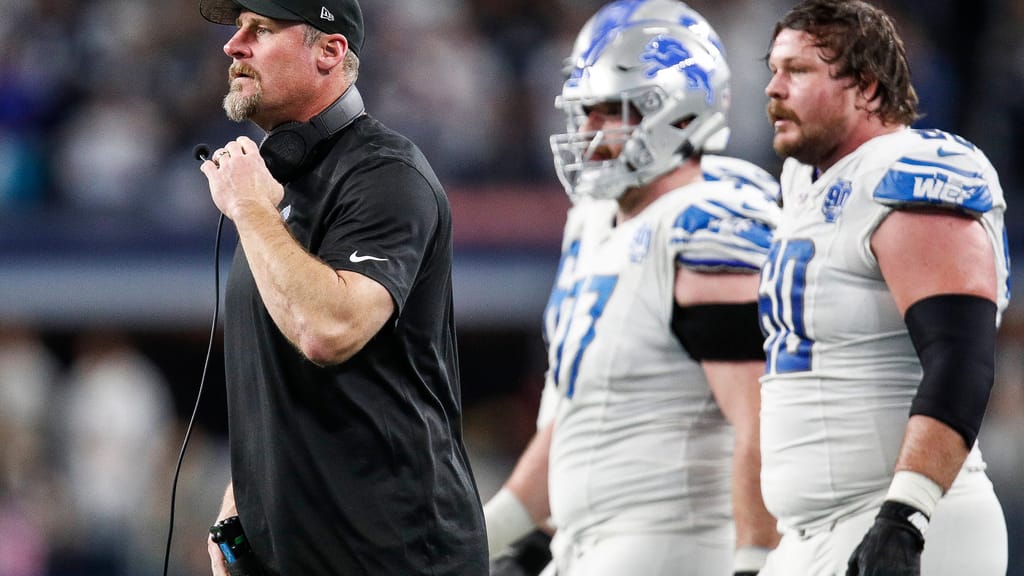
If there was any ambiguity about the reporting of an eligible receiver, the NFL has officially provided and reinforced the how-to guide.
To avoid a repeat of the confusion that occurred at the end of the Dallas Cowboys’ 20-19 victory over the Detroit Lions, the NFL sent a video to all 32 teams Tuesday, clearly delineating the players’ responsibility to report as eligible receivers.
To be eligible to receive a pass, players with uniform Nos. 50-70 or 90-99 must give a “physical signal” and then approach the referee. Only then will the player be acknowledged as an eligible receiver.
Speaking in the video, NFL senior vice president Walt Anderson said the following: “It is the responsibility of the player to be sure that change in status is clearly communicated to the referee by both a physical signal, with his hands up and down in front of his chest, and to report to the referee his intention to report as an eligible receiver.”
On the Lions’ controversial two-point conversion play, three offensive tackles approached referee Brad Allen — Taylor Decker (No. 68), Penei Sewell (No. 58), and Dan Skipper (No. 70), who ran in from the sidelines. Decker said he reported himself as eligible, but Allen instead acknowledged Skipper as the eligible receiver.
When Lions quarterback Jared Goff completed a successful two-point conversion pass to Decker to give Detroit a 22-21 lead with 23 seconds left, Decker was flagged for an illegal touching penalty, overturning the play.
The loss dropped the Lions (11-5) from the No. 2 seed to No. 3, while the Cowboys (11-5) moved up from No. 5 to No. 2 with only one game remaining.
Related: NFL reportedly believes Detroit Lions at fault for controversial reporting vs. Dallas Cowboys
Detroit Lions tried to deceive in reporting eligible receiver

Lions head coach Dan Campbell, who said he explained the play to the officials in a pregame meeting, admitted Monday that he sent the three linemen to Allen in order to confuse the Cowboys. Instead, he confused both the Cowboys and Allen.
As Cowboys owner Jerry Jones later noted, the defense is supposed to know who the eligible receivers are before the play.
Allen was initially criticized for what appeared to be an officiating mishap. If an NFL investigation determined Allen’s call was “extraordinarily unfair” and had “a major effect on the result of the game,” according to the NFL rulebook, commissioner Roger Goodell had the authority to reverse the game’s result.
Related: Detroit Lions head coach Dan Campbell planning to take a major risk in Week 18
The NFL said no action would be taken because of the Lions’ intent to engage in deception and gamesmanship that backfired.
Regardless, ESPN’s Adam Schefter reported that the controversial ending could have been avoided if Allen’s crew hadn’t missed an earlier call — a tripping penalty — on the Cowboys’ previous possession.
As a result, Schefter said Allen’s crew would likely be downgraded, influencing whether it gets chosen for a postseason assignment.